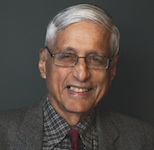How a remark by a doctor in Wuhan evoked Gandhi’s efforts, why it matters
Long after our world bids farewell to COVID-19, a sentence uttered quite close to the virus’s birth is likely to be remembered. On January 30, Li Wenliang, a 34-year-old Chinese doctor in Wuhan, said: “I think there should be more than one voice in a healthy society.” On February 7, a day after the Straits Times of Singapore published his remark, Li succumbed, in a Wuhan ICU, to the virus he had tried to cure in others.
On December 30, 2019, Li informed a WeChat group of his medical school alumni that seven patients who had physically contacted a local seafood market had been placed in isolation wards in his hospital. They had been diagnosed, said Li in his message, with an acute respiratory disease. A screenshot of his message was leaked. Four days later, Li was reprimanded by Wuhan’s police for “spreading rumours online and disrupting social order”.
After the virus exploded, China’s Supreme People’s Court indirectly criticised Wuhan’s police. As quoted in the Straits Times, the Court said: “It might have been a fortunate thing if the public had believed the “rumours” then and started to wear masks and carry out sanitisation measures, and avoid the wild animal market.” This was on January 28, four weeks after Li had been reprimanded and 10 days before his death. Openly rehabilitated after his death, Li was even given one of China’s highest national honours.
The future is unlikely to dwell on that honour, but his call for “more than one voice” will endure. I don’t think I am the only one in whom Li’s remark triggers thoughts about Gandhi, and not just because that remark was uttered on January 30. Recalling Gandhi and Li together, some reflections emerge.
One, the advice to listen to more than one view applies to every society and polity, not merely China’s. For example, before our Prime Minister Narendra Modi announces another far-reaching measure — something, say, like demonetisation or a nationwide lockdown — he could ask for the opinions of his cabinet colleagues. Wouldn’t that be a “healthy” thing to do, and wise as well? Actually, he (and India) would gain if, on sweeping matters affecting our diverse land, Modi were to ask also for the views of our chief ministers. COVID-19 has made plain to everyone the critical role that chief ministers and district officers play. Li may not have realised it, but with his January 30 remark he was exposing the limited scope for wise action from afar. The large polities of China and India cannot be directed by one or two individuals.
Second, and perhaps even more importantly, Li’s advice is relevant for every Indian. The sequence from COVID-19 to nationwide lockdown to helpless, massive migration revealed our weakness as a society. India’s brutal reality was unmasked. If even that migration does not force us to admit the folly of India’s inequalities and hierarchies, what will?
Li’s sentence, and its context, puts me in mind also of young Gandhi’s efforts more than a century ago. Working against plague in Rajkot in 1896, a 26-year-old Gandhi found that the town’s Dalits kept their homes cleaner than the higher castes did. A few years later, in 1904, he and two compatriots in South Africa (Madanjit Vyavaharik and William Godfrey) put up a daring battle that saved the lives of several plague-hit Indians linked to an over-crowded settlement in Brickfields, outside Johannesburg. Persuading the Indians of Brickfields to vacate their unsafe colony and move to a new tent-town, Gandhi told them that “sanitation and hygiene” had to be made “part of our being”. Overcrowding had to be “stamped out” and “we should freely let in sunshine and air”.
This Gandhi was 34, Li’s age at death. Thereafter, Gandhi warned year after year of what India’s 2020 migrations have made irrefutable: Indian society will remain diseased until our governments and governed, working together, renew life and livelihoods in our countryside. Future viruses surely lick their lips as they contemplate 1.5 billion Indians inhumanly packed into a dozen megacities and a hundred smaller ones.
Finally, no matter how large the responsibility which the government of China must assume over the pandemic, no matter how uneasy the situation on India’s border with China, and notwithstanding the shortage in democratic practice in China’s governance, we cannot blame Chinese individuals in our hearts.
For all of us, COVID-19 has amplified a truth that Gandhi never ceased to repeat, which Li’s remark also hints at: Hate the sin, not the sinner. Or the sinner’s people. You may disagree with what a person says. You may dislike what he or she does. But you may not disdain the race, religion or ethnicity to which that person belongs.
By underscoring the equal vulnerability of every member of the human family, COVID-19 has shown the silliness in blaming persons for their skin-colour, blood-group or religion. Yet, who knows? If we are in love with our slumber of prejudice, we may sleep right through COVID-19’s relentless toll and emerge as uncontaminated as before by the notion of a common humanity.
Both before and during COVID’s attack, many of India’s residents who supposedly “look like the Chinese” have faced discrimination or abuse — Assamese, Khasis, Meiteis, Mizos, Nagas, Nepalis, Tibetans and others. I hope at least some Indians will resolutely oppose any drive, open or subtle, against the people of China or those allegedly looking like them.
COVID’s flash of danger is also a lightning of truth that exposes prejudice for what it is.
